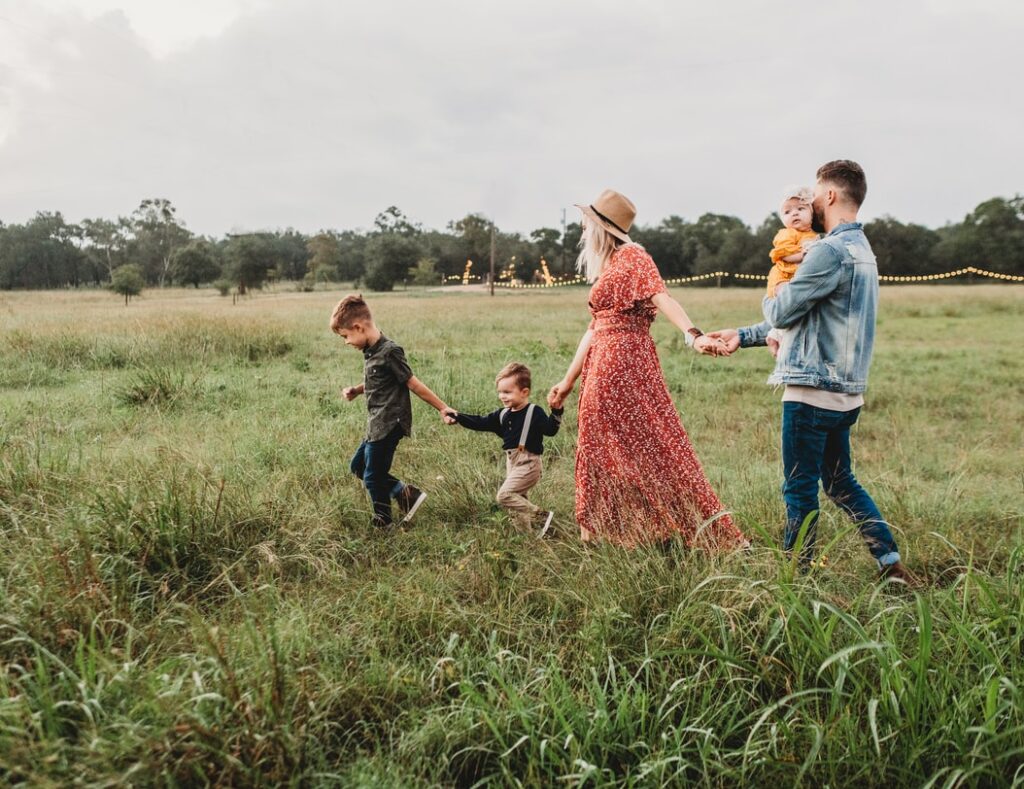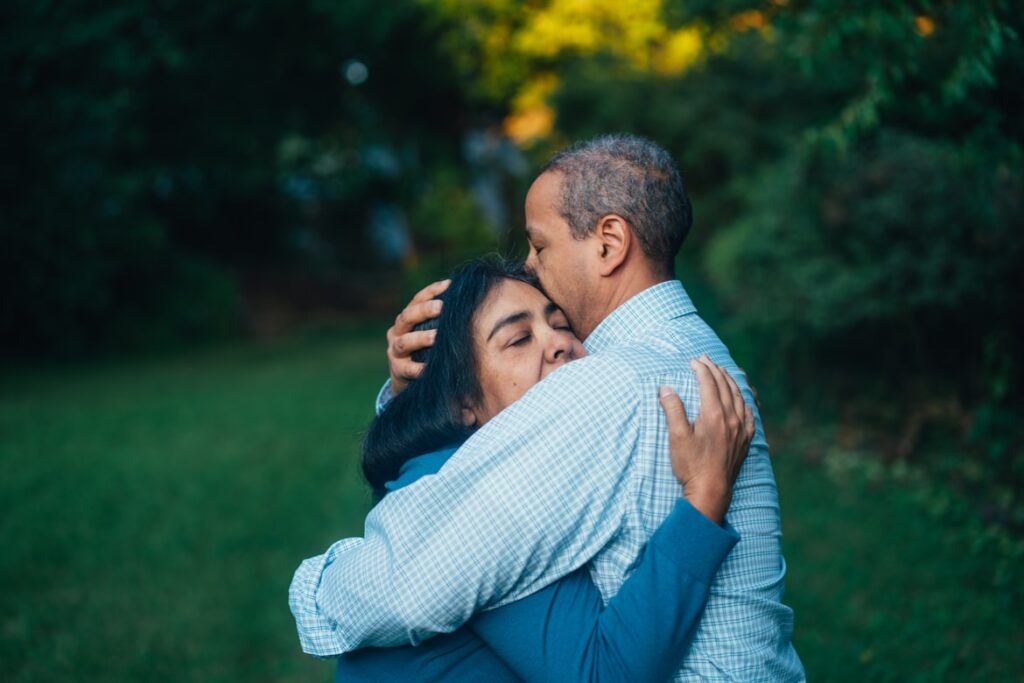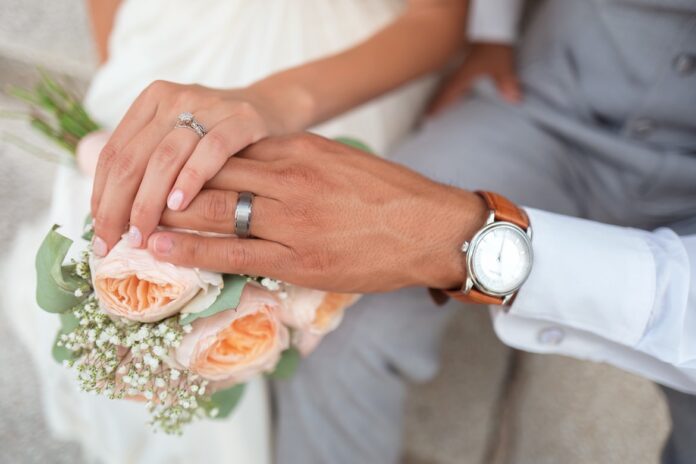Six years into their marriage, Amy and Charlie feel like they’re not growing as a couple. They’re not growing in their love for each other, for their family, or for their career. They’re not growing as individuals, either. It’s as if their marriage is stuck in a rut, and they can’t seem to break out of it.
What’s the problem? Amy and Charlie are married in Stage 3 of the 4-Stage Marriage Model: Stage 3 (Survival) is the marriage in which the couple shares a dwelling, has children, works together, and has a somewhat stable, semi-comfortable lifestyle.
Marriage has evolved over thousands of years. Back then, marriage was a survival strategy. Men needed wives to ensure the survival of their tribe. But over time, we learned that it wasn’t necessary to have a wife, and we stopped requiring certain types of marriages.
Today, marriage is a contract that can be changed, and we’re seeing more and more people putting divorce at the top of their list of “have to dos”. In fact, the divorce rate in the U.S. is increasing every year. Although divorce is tempting, it can be a risky decision—sometimes it’s better to put off the ending to a failed marriage and wait it out. Read on to discover the four stages of marriage and learn why too many stop at stage 3.
So you’ve been dating your new boo for a while now, and you’re eager for the day when you will be able to say, “I’m in love.” But as you’ve probably noticed, not every relationship comes with a sweet, romantic ending.
Instead, most relationships end in Stage 2, the “avoid each other at all cost” stage. Here’s why this happens, and how you can get to Stage 3 before you get stuck in the second stage forever.. Read more about 5 stages of love psychology and let us know what you think.
When Marcia’s husband of twenty-five years told her, “I’m not in love with you anymore,” she was heartbroken. Our marriage has lost its vitality, and I don’t believe we’ll ever get it back.” Her husband Mark left the home two days later. He said that he needed to get things straightened up. The two children of the marriage were perplexed and terrified.
Marcia called my number in a panic. She told me, “I feel blind-sided.” “We’ve had our ups and downs, and Mark’s been dealing with a lot of job stress, but I never imagined it would come to this.” Marcia burst into tears after telling me about their life up to this point. “I adore Mark and don’t want our relationship to end. “What am I supposed to do?”
Hearing the words “I’m not in love with you anymore” is like having your heart torn out, I told her. Your world seems to be crumbling around you. It doesn’t have to be the end, however. In fact, it might be the start of the greatest love of your life.
Marriage-and-Family Therapist’s Confessions
We teach what we want to learn, as the saying goes. I’ve been teaching people how to build great relationships that stay passionate, loving, and creative throughout time for more than 40 years.
I’ve had a rewarding career as a marital and family counselor, and I’ve assisted hundreds of couples. But the reality is that my primary reason for entering the profession was to discover how to have a happy marriage.
When I was five years old, my parents separated, and I was raised by a single mother. I swore that I would not suffer the same fate as they. “It would be forever if I fell in love.”
That was probably one of the love songs I heard when I was younger. For me, “forever” lasted almost 10 years. My second marriage lasted just two years after I remarried. Before I married again, I promised myself that if I ever met the perfect person, I would discover the secret of true, enduring love.
Carlin, my wife, and I have been married for 35 years now. I’ll be honest, it’s been a struggle at times, and there have been moments when I wasn’t sure we’d make it. But I can tell you that we’ve figured out how to have a happy, functioning marriage. Understanding the four phases of marriage proved to be crucial to our success.
The Marriage Process in Four Stages

Carlin was one of the first people I fell in love with. We first met in an Aikido dojo then reunited for a weekend course on Sex, Love, and Relationships. Because I was so engrossed in Carlin, I don’t recall much of the official education. We conversed, strolled on the beach, and conversed some more.
I felt like I’d finally met my soul mate. We laughed and played together, and we fell madly in love. We were certain that things would continue to be great now that we had finally met “the perfect guy.” Oh, we were so naive. This was just the first of four phases, as it turned out:
- The First Stage: Falling in Love
- Stage 2: Forming a Partnership
- Disillusionment is the third stage
- Stage 4: Developing Genuine, Long-Lasting Love
1. Nature’s Trick to Bring Us Together: Falling in Love

Here’s an exercise in thinking that can teach us a lot. Consider what this basic fact implies: None of your forefathers or mothers were childless. We know you had at least one kid with your parents. We also know that at least one of your grandparents had a kid. You may trace your ancestors all the way back to the beginning of time. You may or may not be a parent, and you undoubtedly know individuals who will never be parents. However, your forefathers and mothers did.
How did they manage it? They fell in love, or at the very least, they fell in lust, which is a common side effect of falling in love. Nature’s trick, as I call it, is that it brings us together. All of those hormones are activated, including testosterone, estrogen, dopamine, and many more. We wouldn’t be able to reproduce without them, and our species would perish.
It also feels great since we are projecting all of our aspirations and ambitions into our partner. We think that they would satisfy our wishes, offer us all of the things we didn’t receive as children, and keep all of the promises we made in previous relationships. We are certain that we will always be in love. We are blissfully unaware of all of this because we are enslaved by “love hormones.”
2. Nature’s Way of Keeping Children Alive: Becoming a Couple

It’s important to remember that we’re all mammals who must devote a significant amount of energy to rearing our offspring in order for them to live. It all begins with mother’s milk and continues from there. Whether or whether we have children, we are designed to ensure their survival. We learn to form strong bonds with our partners and children. We have a task to do. We are constructing a life together.
Even if no children are present, the strength and intensity of love binds us together. We all have illusions about how a relationship would fulfill us, and we are all disillusioned in the end.
3. Disillusionment: The Start of the End or the Start of the End?
The connection begins to disintegrate at some point. We are more combative. We don’t have sex as frequently as we used to. When we do make love, it’s more about obligation than passion, about instant gratification and stress relief rather than profoundly felt love.
Things we used to ignore in our spouse have now turned into thorns in our sides. He forgets to put his soiled clothing in the hamper. She’s running late for yet another crucial occasion. Fights become more frequent or vanish altogether. Everything may seem to be in order on the outside, but we are empty and alone on the inside.
We are more susceptible to illness, and we may get severely ill as a result. Atrial fibrillation became a problem for me. My wife was diagnosed with breast cancer. We don’t always identify diseases as stress responses. It’s frightening to see love go away.
Many couples fall apart at this point. We go our own ways, ultimately fall in love again, and the cycle begins again with stages 1, 2, and 3. However, this does not have to be the case. Disillusionment does not imply that you choose the incorrect spouse or that the love you once had has vanished. It indicates you’re ready to let go of love’s illusions and get down to business.
4. Keep Going: The Pleasures of True, Lasting Love

My first wife and I recall going to hear the renowned psychologist and therapist Carl Rogers speak on marriage when we were young. He was in his eighties at the time and had been married to his wife for almost sixty years. My wife and I had just been married for a year and were eager to hear the great man’s advice on love and life.
He looked to his wife, Helen, at one point during his speech. “Do you recall how terrible things were in our relationship for a while?” She gave a little nod and grinned. I was astounded to learn that my hero was having relationship issues. What happened next, though, astounded me.
“There was a period of nine or 10 years when everything was terrible.” Helen smiled and shook her head, recalling her own memories. “But we stuck it out and got it figured out.”
“You have to be kidding,” I thought. “Nine or 10 years of bad luck?” I can’t see things ever being bad for me and my wife, and even if they were, I couldn’t fathom remaining in that condition for nine or 10 years.
Now that I’ve been married for 35 years, I’m well aware that there may be some really bad periods. However, it is through these experiences that we learn about true, long-lasting love. We learnt to heal past wounds, stop blaming our spouse for not meeting our needs, and regain our lost power throughout the years.
It’s not simple to come to an agreement as a group. But understanding the four phases of love, as well as recalling Carl Rogers’ words and Helen’s look of affection, has aided my path. I hope it will be of use to you as well.
The chance for “genuine, enduring love” arises after the conclusion of “being in love.” It doesn’t happen overnight, and it’s never all sunshine and roses. But there is nothing more important in our lives than learning to love truly and well. I’d want to hear about your own journeys along the road of love. We can learn from each other and make the world a better place if we work together.
I eagerly await your feedback. Send me an email if you need assistance preserving your marriage and want to learn more about my unique program, You Two For Life.
You may also receive immediate access to my best-selling book, The Enlightened Marriage, in which I discuss all of the phases of marriage and what you can do to successfully traverse them. Find out more and get yours now.
No matter how long you’ve been married or how serious you are about your relationship, you probably know a lot of couples that have stopped well short of the altar. High divorce rates and the lack of commitment among our younger generations suggest that many marriages are in trouble at an early stage. Why do some couples get engaged and stay that way, while others fall apart just as quickly? Here’s a look at the four stages of marriage and what you can do to keep your union from fizzling out.. Read more about 4 stages of marriage psychology and let us know what you think.
Frequently Asked Questions

What are the 4 stages of marriage?
The 4 stages of marriage are engagement, dating, engagement and marriage.
What is Stage 3 of a relationship?
Stage 3 is when the relationship has been going on for a while and you’re both comfortable with each other.
Why do couples stop loving each other?
This is a difficult question to answer. There are many reasons why couples stop loving each other, but the most common reason is that they grow apart and no longer have anything in common with one another.




